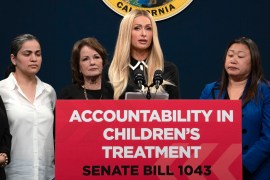Gov. John Hickenlooper said Colorado will expand its Medicaid program as much as the federal health care law calls for, and he said the state won’t have to spend any extra money to make it happen.
The federal health overhaul law requires states to significantly expand the health care program for the poor, but when the U. S. Supreme Court ruled on the Affordable Care Act last June, it said states couldn’t be forced to take the new Medicaid money, essentially making that expansion optional.
Hickenlooper made the announcement on Thursday, the same day the Obama administration made news announcing which states will be running their own health insurance marketplaces, called exchanges. Hickenlooper said Colorado will bring a projected 161,000 people into the Medicaid program over the next ten years.
“I think this is a step towards what we’ve talked about for a couple of years now, about how do we move and make sure that we’re making Colorado the single healthiest state in America,” the governor said.
The federal government will pay for the entire expansion for three years. After that, the state will have to pay a portion, but Hickenlooper said that can be covered with existing revenues and cost savings efforts. That’s possible in large part because in 2009 Colorado hospitals agreed to pay a new fee for Medicaid expansion that helps draw extra funding from Washington.
Republican State Sen. Ellen Roberts of Durango says the expansion is not a good idea at this time. “I hate to be a party pooper,” Roberts said. “I just feel very concerned that particularly with as volatile as things are in Washington, D.C., as unresolved as they are in terms of reducing the deficit, this is not the time to expand entitlement programs.”
Right now, Medicaid in Colorado generally covers only children, pregnant women, the disabled and the state’s poorest residents. The governor says the state should offer it to anyone making less than about $15,000 a year.
“These are folks that need assistance,” said Sue Birch, who oversees Colorado’s Medicaid agency. “Either they can’t afford health care or their employer doesn’t offer health care, and they certainly are struggling to make it.”
This story is part of a reporting partnership that includes NPR, Colorado Public Radio and Kaiser Health News.







